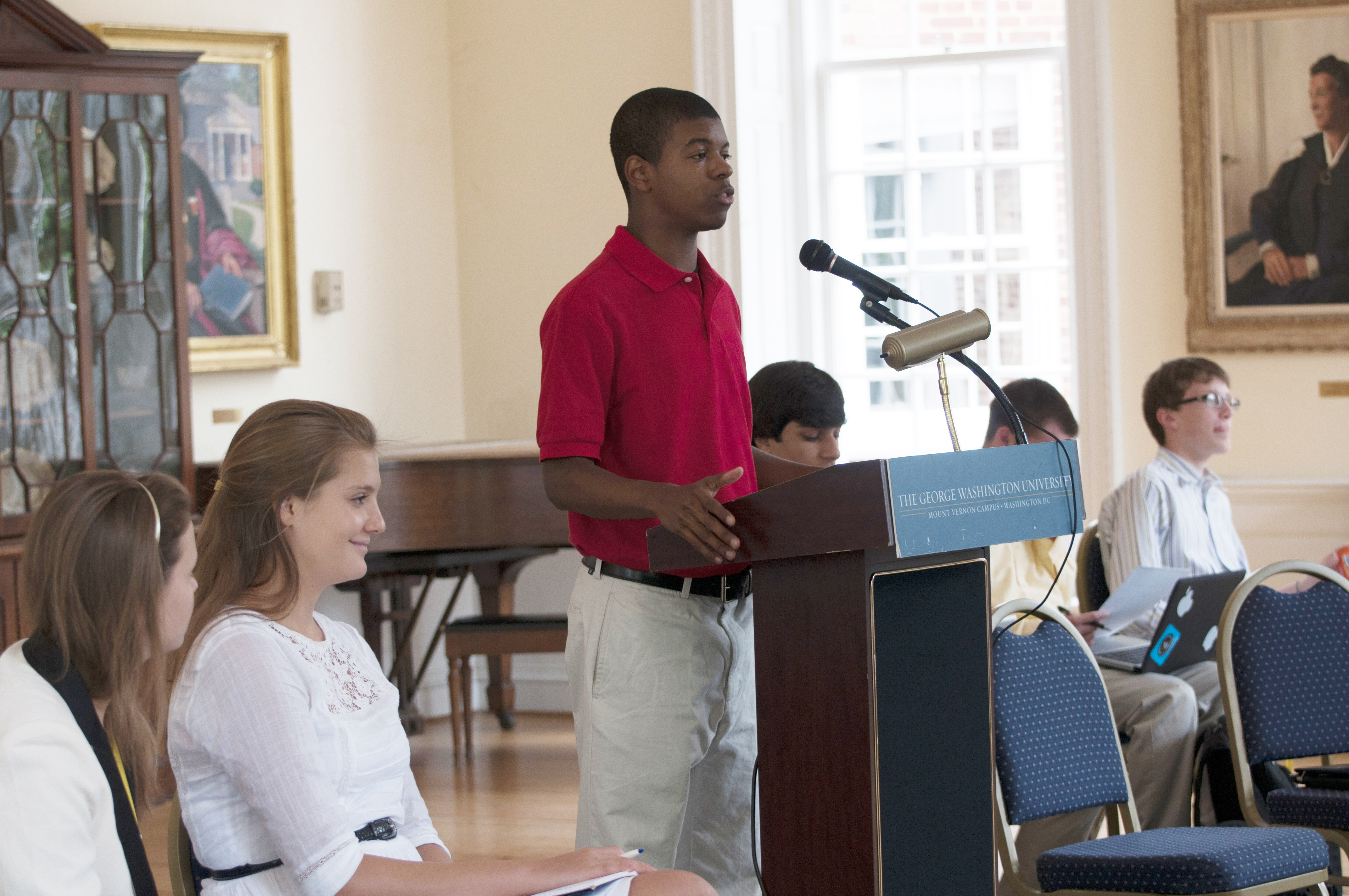Leadership

Effective leadership is essential in order to make a meaningful impact. GW has a long history of preparing leaders to influence change in nonprofit, government, local community, and corporate settings.
Our Pre-College courses help high school students learn the principles of effective leadership by leveraging the resources of Washington, D.C. and the expert faculty at GW. Students will have opportunities to see successful leadership exemplified firsthand, and will leave our program ready to make a difference in their own communities.
On-campus and online courses are available for credit, while our noncredit offerings focus on experiential learning environments, connecting students with relevant institutions and experts in their respective fields.

